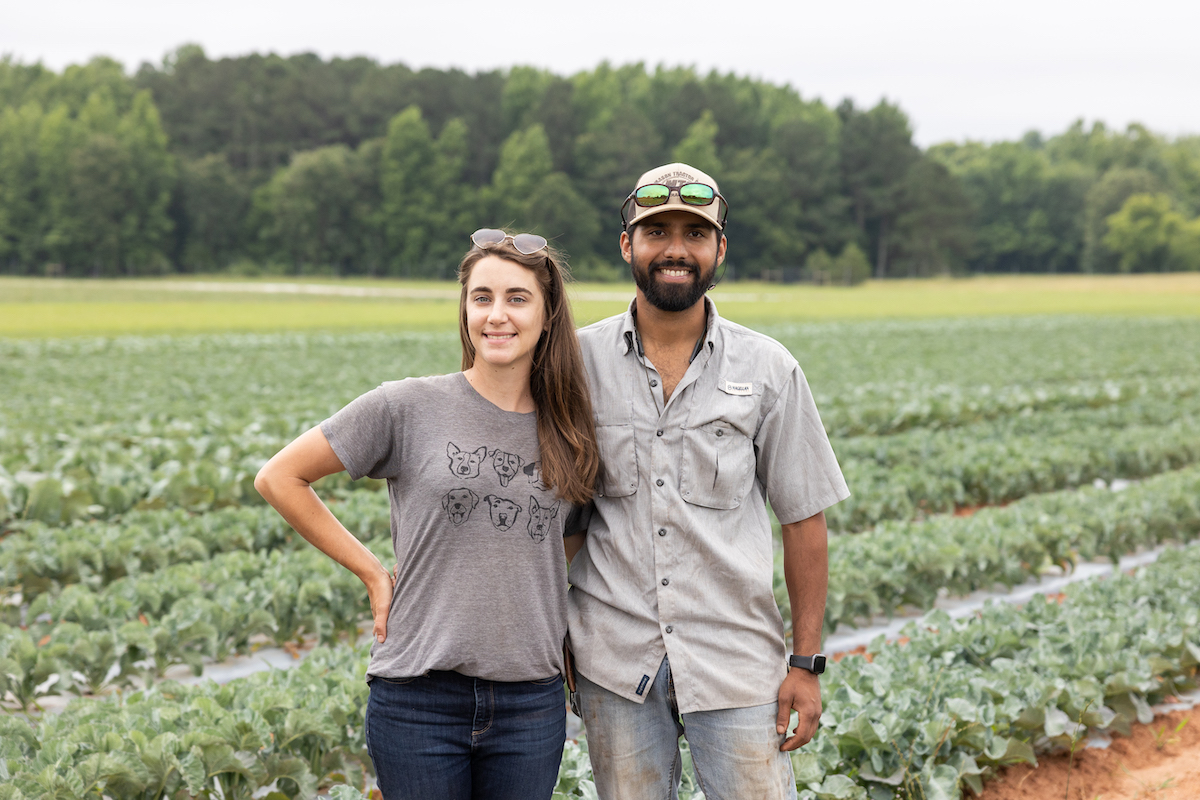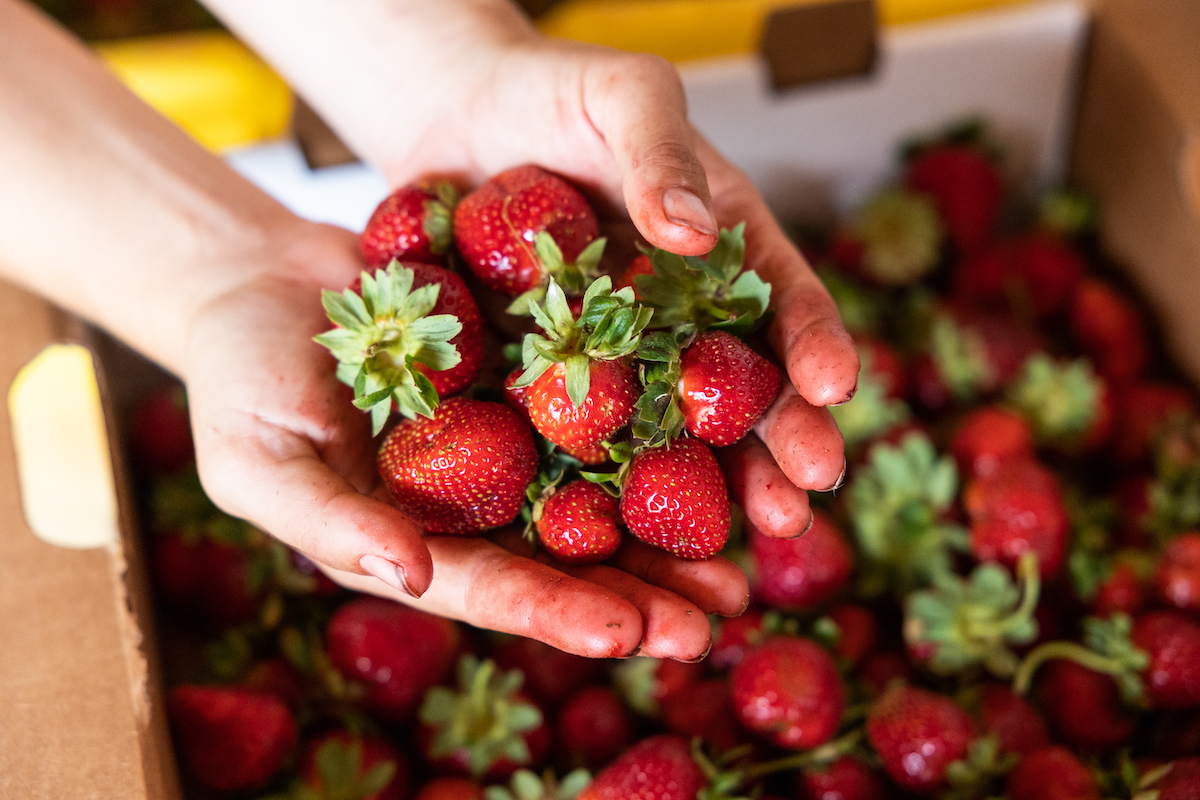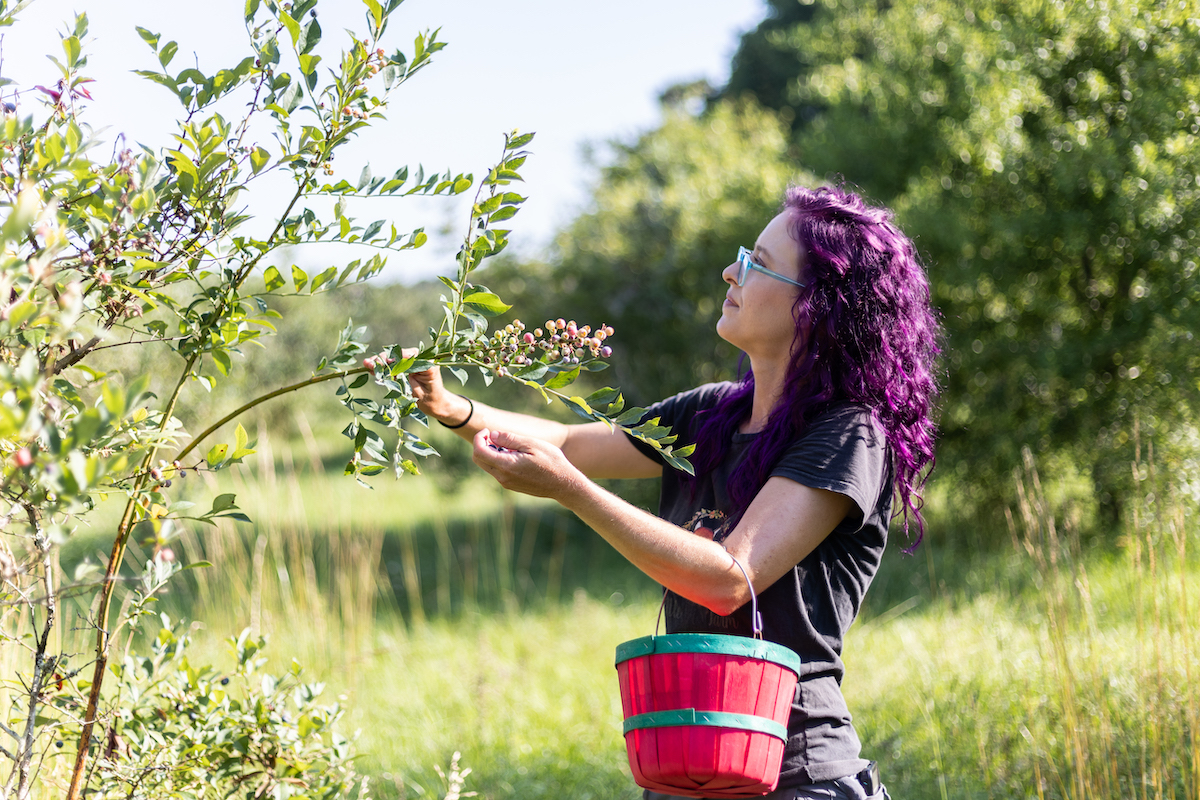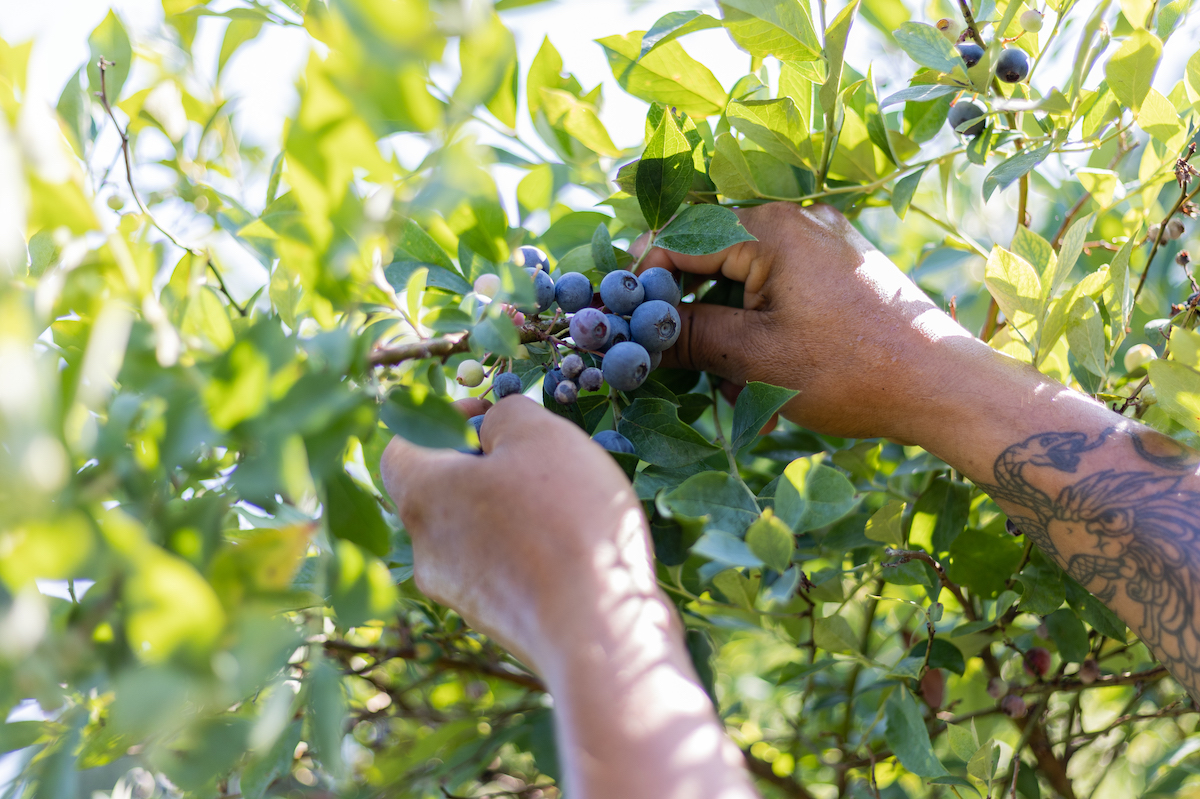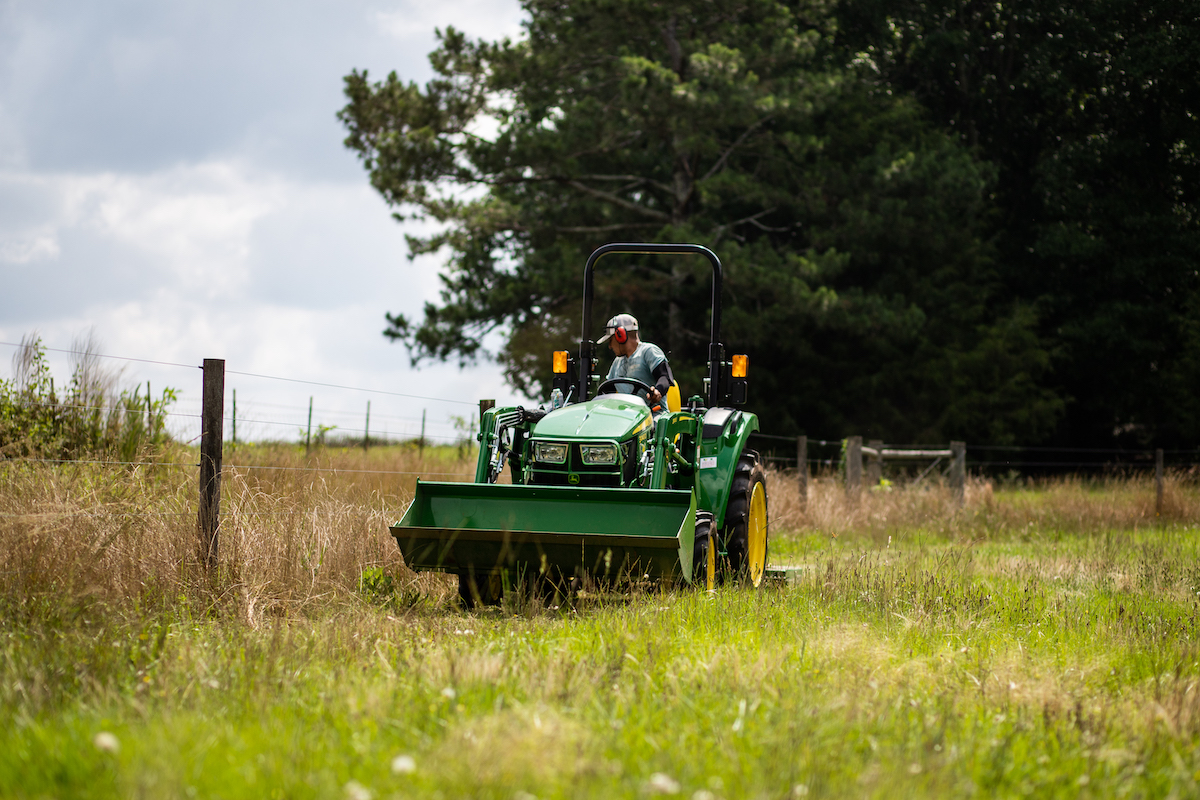Summer brings to mind farmers markets, fresh produce and time spent outside — including meals.
Emory is working to bring that farm-fresh flavor to campus without traveling too far from home.
Meet the Farms Fund, an initiative from the Conservation Fund that works with farmers to build a healthy, resilient and sustainable food system. Emory partnered with the Farms Fund five years ago and has been supporting metro Atlanta-area farmers and agriculture by integrating fresh, local food into everyday campus life.
The Farms Fund works to protect farmland under threat of development by purchasing that land. It also offers a path to ownership that many farmers wouldn’t otherwise have — particularly for those who are first-generation, women and/or people of color.
By supporting farmers from the ground up, the Farms Fund builds a local food system and supplies communities and institutions with local and sustainable food that aligns with values like diversity, equity and inclusion, supporting local businesses and combating climate change.
The importance of next-generation farmers
The number of farms in the U.S. has been steadily declining, with a decrease of 7% in 2023 (at 1.89 million farms) compared to 2017 (at 2.04 million farms), and the average farmer is 58 years old and climbing. With fewer descendants taking over family-owned farms, the land is being sold — meaning that nutrient-rich soil can be turned into a subdivision instead.
But it’s not fair to ask farmers to give their land away for pennies solely to protect it.
The Farms Fund sits at that intersection.
“We are the financial mechanism by which farms are acquired for next-generation farmers,” says Farms Fund director Krisztian Varsa.
To successfully build new farms, the fund purchases land from a former farmer and pays fair market value for it. “That means the farmers can retire, or their kids who have moved away but want to protect their family’s legacy will be able to have an inheritance but also protect the land,” Varsa says. “We purchase that farm and then we immediately find the farmer who best fits the property.”
But, he adds, “The how we do that is less important than the why.”
Varsa explains that the current food system is broken and no longer works locally. In fact, outside of major metropolitan areas, the greatest threat to the food system is development.
“Our job is to help build successful small- to mid-sized farms that can overcome the challenges of that food system and help grow more food to get to more people in the community,” Varsa says.
Any home gardener knows that there’s no controlling Mother Nature. Scale that up, and you can understand why farmers benefit greatly from a steady income, which can be achieved through wholesale agreements or even community supported agriculture (CSA) endeavors, where local households can subscribe to fresh produce.
Enter Emory. Students involved in the Turner Environmental Law Clinic visit Global Growers farm, a Farms Fund farm in Rockdale County.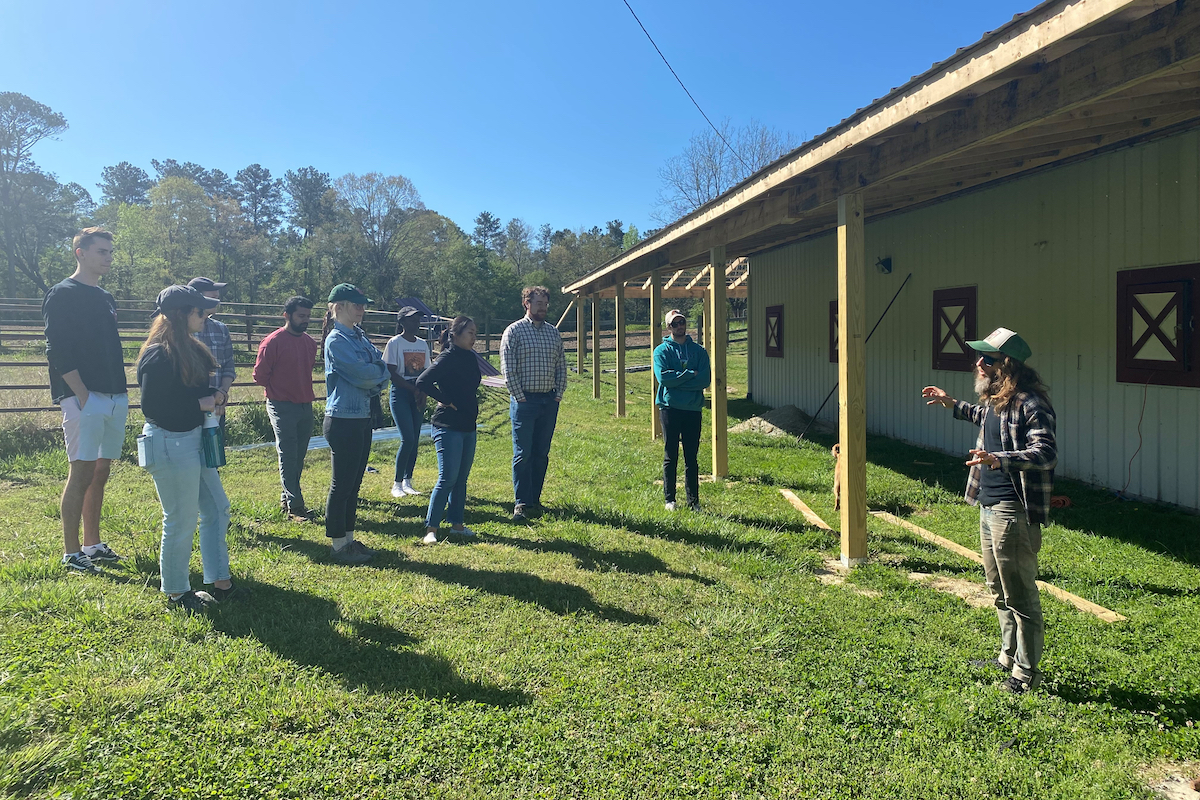
Emory and the Farms Fund
Emory officially partnered with the Farms Fund (then known as the Working Farms Fund) in 2019, committing to buy Farms Fund farmers’ crops and livestock. This commitment ensures a steady supply of local food for the university and gives the farmers some dependable income in an industry where so much is uncertain.
“The Farms Fund is about rebuilding our local food system. That requires protecting farmland, supporting the next generation of farmers, and fostering dependable, wholesale markets. Emory’s commitment proves that institutions are critically important, willing, and capable partners in this endeavor” says Mindy Goldstein, a law professor who directs Emory’s Environmental and Natural Resources Law Program and the Turner Environmental Law Clinic.
The pioneering partnership emerged from work being done through Emory’s Office of Sustainability Initiatives and the Turner Environmental Law Clinic. Each year, the clinic provides more than 4,000 hours of pro bono legal representation to individuals, community groups and nonprofit organizations seeking to protect and restore the environment.
When approached by the Conservation Fund in 2016, Goldstein remembers being excited to provide free legal advice and help the fund — and farmers — think creatively and strategically about the legal tools available.
“I’m interested in things with outsized impact, things that can be scaled, modeled and copied. It’s proven to be such a wonderful partnership. What started as a traditional legal representation has grown into so much more,” says Goldstein.
The fruits (and vegetables) of that labor are enjoyed across dining halls at Emory. While the Oxford Organic Farm supplies fresh food for dining in Covington, the Atlanta campus primarily benefits from the Farms Fund.
Getting local food to the Emory community
Chef Nicholas Walker is the director of operations for Bon Appétit at Emory. He ensures that food reaches everyone across the Atlanta campus safely and productively, from confirming cafés are prepared to aligning teams toward branding goals to working with chefs on food orders and beyond.
Walker has a background in building culinary operations and incorporating farms, entrepreneurs and craft people into the industry.
“I’ve used those experiences and connections to bring some of those relationships here and foster a better community-driven, farm-to-table type of approach in our dining across campus,” he says. “It started from day one when I got here, so that’s been awesome.”
Homing in on the appropriate seasons and how that melds into the menus leads to a more symbiotic relationship between Emory and the farmers. That’s another benefit of the wholesale versus retail market, and one reason diners won’t find strawberries in Emory Dining in the middle of winter, even if they’re at the local grocery store.
Local farmer Rahul Anand, owner of Snapfinger Farm in Newton County, explains the domino effect of wholesale agreements. Because growers can negotiate ahead of time, products can be grown during the standard growing season, unlike the retail market which demands near-constant variety — putting strain on resources and the farmers themselves.
“With the larger space we were able to acquire through the Farms Fund, plus shifting to focus on wholesale, I can prepare and plant more ground at once,” Anand says. “That means I can better time my 10 acres of spring fields to be done at relatively the same time, which means I can put in cover crops more effectively, and with the increased space I can avoid multiple plantings.”
Even with these well-laid plans, unexpected twists happen. That’s why Emory works with multiple farms to offset any losses or unexpected hurdles.
“We try to make sure that everyone is included, that their farming has a place here. We don’t throw all of it in one basket,” Walker says.
Of course, Emory Dining works to educate patrons, too, and it goes beyond produce. Thanks to using local flour for pizza crust, Walker has had the opportunity to explain to students that when flour is white, it means it’s been processed, and nutrients have been added back. The local flour used in the dining hall, however, is darker because it’s whole wheat, with the bran still attached.
“I want food to be a conduit for people,” Walker explains. “The dining hall is their kitchen; this is their home. We need to have our hospitality featured and provide good products and intentionality in what we’re doing so they feel comfortable in this space. Having a safe space to go and get a really good grass-fed burger or a really good vegan meal can turn someone’s day around. That’s something.”
Food as a conduit is also the pulse under Varsa’s work.
“The food, humanity and culture of agriculture resonated with me from a land use perspective and facilitating that cultural importance on a broader scale feels really impactful,” Varsa says. “Even in the U.S., we have culturally significant food, like Wisconsin with cheese and California with wine. Agriculture impacts all of our experiences and I love that there’s part of the work I get to do that impacts lots of people’s experiences.”
Without local farmers, those regional specialties wouldn’t exist as they do today.
Lindy Kloepfer, owner of Little Fox Farm in Pine Mountain, Georgia, came to the vocation early. To resolve some recurring health issues, she became interested in locally grown and organic foods around 16, which led her to volunteer at an organic farm in Fort Lauderdale. At 18, she moved just outside of Atlanta and apprenticed on another farm for two years before ultimately leasing that property for eight years.
“Before I started the with the Conservation Fund, when I was leasing land from someone else, I don’t think there would have been any way for me to purchase farmland as a first-generation farmer,” Kloepfer says.
Anand’s path was less straightforward. While attending college in Washington, D.C., and pursuing a degree in economics and public policy, “I thought about what actual jobs that would lead to… and realized I didn’t want to do those jobs,” he remembers.
Eventually, he left college and started looking for alternative career paths, guided by the fact that he enjoyed working with food and working outside — which led him to farming. “I went from working on a farm to managing a farm that someone else owned, to starting my own farm in 2016 and then, in 2022, expanding Snapfinger Farm to where we are now with the Conservation Fund,” Anand says.
What it takes to make farming work
Farming — even on a small scale — isn’t something to pursue lightly.
Beyond the financial implications of getting started, Kloepfer emphasizes how physically, mentally and emotionally demanding the work is.
“We also can and do go through crop loss each year,” she says. “If it’s not the fruit it’s other crops. Sometimes it’s because of a drought, sometimes it’s because we have too much rain… it varies year to year.”
That reality is why Little Fox Farm grows a wide variety of products on its eight acres, from blueberries, strawberries, figs and muscadines to vegetables and cut flowers. While larger farms may have crop insurance to help bolster against loss, smaller farms typically don’t. Growing a variety of products can help decrease the impact of weather-related loss.
“I would emphasize how difficult it is for a first-generation farmer who hasn’t inherited land from family to get into the industry,” Kloepfer says. For context, a single acre of land — slightly smaller than a football field — costs upward of $10,000 in Georgia.
While Kloepfer is still roughly a year from purchasing the land, she says the entire experience has been well worth it. “Our biggest hope for the future is to actually be able to purchase the farm and to continue settling on this piece of land. This is our third season here and we’re finally starting to feel a little bit settled in.”
Think all land around Atlanta is the same? Think again. Kloepfer’s farm is only about an hour south of where she previously leased land, but she explains, “It’s a whole different microclimate and the soil is different.” In other words, what worked in the past may not work here.
But even with those headaches, Kloepfer and Anand wouldn’t give up their vocation — which reinforces Varsa’s commitment to his work, too.
“My favorite part of farming is seeing things grow and grow well,” Anand says. “Being able to experiment with things, and every day is a little different, so I get to problem solve and try new approaches.”
While Varsa himself isn’t a farmer (although he does boast two large raised beds planted with fresh produce at home), he’s still focused on growing agriculture.
“It’s unbelievably remarkable when you step foot on a farm on day one, then 365 then 720 and see how these businesses bring so many resources together and work so hard,” Varsa says, explaining that farmers are agile and able to adjust their plans when new opportunities pop up.
“You unlock the land, and everything flows. You have no idea how much power is in the land and how transformational it is when the access is done in such a way that it centers the farmer and their goals and builds the system around them. We can build a successful local system when it looks like that.”
With their hard work and growing success, there’s no doubt that the Emory community — and Atlanta, more broadly — will continue to reap the benefits.


